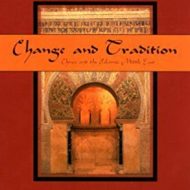I found it hard to add to the discussion in class today because all we really talked about were religions, their similarities and differences. (something I don’t know a ton about).
Remember that day in class when we talked about what we should show someone who wasn’t from the U.S. to help them understand American culture? None of the stuff we talked about would truly help the person understand the culture fully, or really even at all, it would most likely be more confusing than not. This is kinda how I felt today in class, just reading the Quran didn’t necessarily teach me about it, just like reading the Christian bible isn’t going teach you everything about the Christian religion. I think it would be easier to start with the main focus of the religion, make sure we fully understand that, then we can compare it to other religions. Maybe this is just something that confused me, because I’m not super educated on Islam, but that is just my perspective from class today.
Don’t get me wrong, learning about the different religions is great, I just felt for me as if we were starting in the middle, that I was missing the foundation of understanding for what we were discussing in class, that was assumed to be gained from reading the Quran.
In an attempt to help my confusion I did use google to try and answer some of my questions. But, like Dr. McGrath mentioned doing our own research can be difficult because there are so many online sources and variations of religions and their beliefs. This is an example of one of those times where google didn’t really help me, it just brought up more questions.
